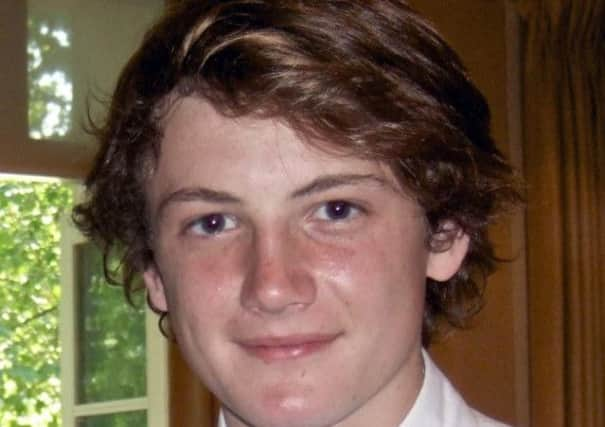Polar bear ripped tent and mauled boy to death


Sir David Steel describes the incident during his report commissioned by the British Schools Exploring Society (BSES) into the death of Horatio Chapple in Svalbard, Norway.
He said the attack, which “lasted no more than a few minutes” took place on 5 August, 2011, while the group was still asleep.
Advertisement
Hide AdAdvertisement
Hide AdThe report’s publication was delayed to coincide with an inquest into Horatio’s death, which opened yesterday.
“This tragedy was caused by the rare occurrence of an intrusion of a starving polar bear into a camp situated well inland in Svalbard,” Sir David wrote.
“It was a remote possibility but not unforeseeable.”
Sir David went on to criticise the reliance on a tripwire warning system and advised the adoption of a “bear watch” and overhaul of rifle training to prevent future tragedies.
He described how the bear had approached through the north-western side of the trip-wire system but none of the warning “mines” had exploded.
The Chapple family said in a statement – released before the start of the inquest into Horatio’s death and before the report’s findings were made public – that they “accept some of the conclusions in the Steel report”.
However, they said they “do not believe the account of Horatio’s death to be accurate”.
Mother Olivia, a GP, and father David, a surgeon, told the inquest in Salisbury that they had been concerned about polar bear attacks before their son went on the trip.
They examined a risk assessment document with Horatio before he left for the expedition in July 2011 and believed a number of safety precautions would be in place to protect him.
Advertisement
Hide AdAdvertisement
Hide AdBoth parents understood their son would be equipped with a pen flare, with a working tripwire around his campsite and a weapon available to a trip leader in case of an attack.
However, the expedition did not have enough pen flares – devices which shoot flares up to 50 metres to frighten approaching bears – and only team leaders were equipped with them.
There were also a shortage of stakes for the tripwire, the device’s trigger and tripwire itself – as well as mines to be situated around the perimeter of the campsite.
“We believed that the staff at BSES would do as they said and act responsibly to protect the children under their care,” Mr Chapple told the hearing.
“We were never told the bear tripwires only sometimes work. The risk assessment refers to flares being available to all members of the expedition.
“If this had been implemented then Horatio would have at least had some time to defend himself other than with his bare hands.”
Four of the trip leaders were seriously hurt in the attack including Andrew Ruck, 27, who lives in Edinburgh.
Richard Payne, leader of the expedition, told the inquest: “My intention was that all young explorers and leaders would have a pen flare. It was only when we landed at base camp that I discovered there weren’t enough pen flares to equip everybody on the expedition.”
Advertisement
Hide AdAdvertisement
Hide AdAssistant coroner Ian Singleton, asked: “Were you satisfied with the safety aspect of the trip as a whole?”
Mr Payne replied: “The three mines was the only downside, otherwise I was happy.”
Sir David said that a post-mortem examination on Horatio concluded his death was caused by “extensive soft tissue and bone injuries to the face and neck including destruction of the right facial artery”.
He said: “All members including not least Horatio demonstrated great courage in the face of the attack.
“Likewise considerable presence of mind was shown by the uninjured members of the party in the aftermath of the attack in tending to the wounded and calling for help.”